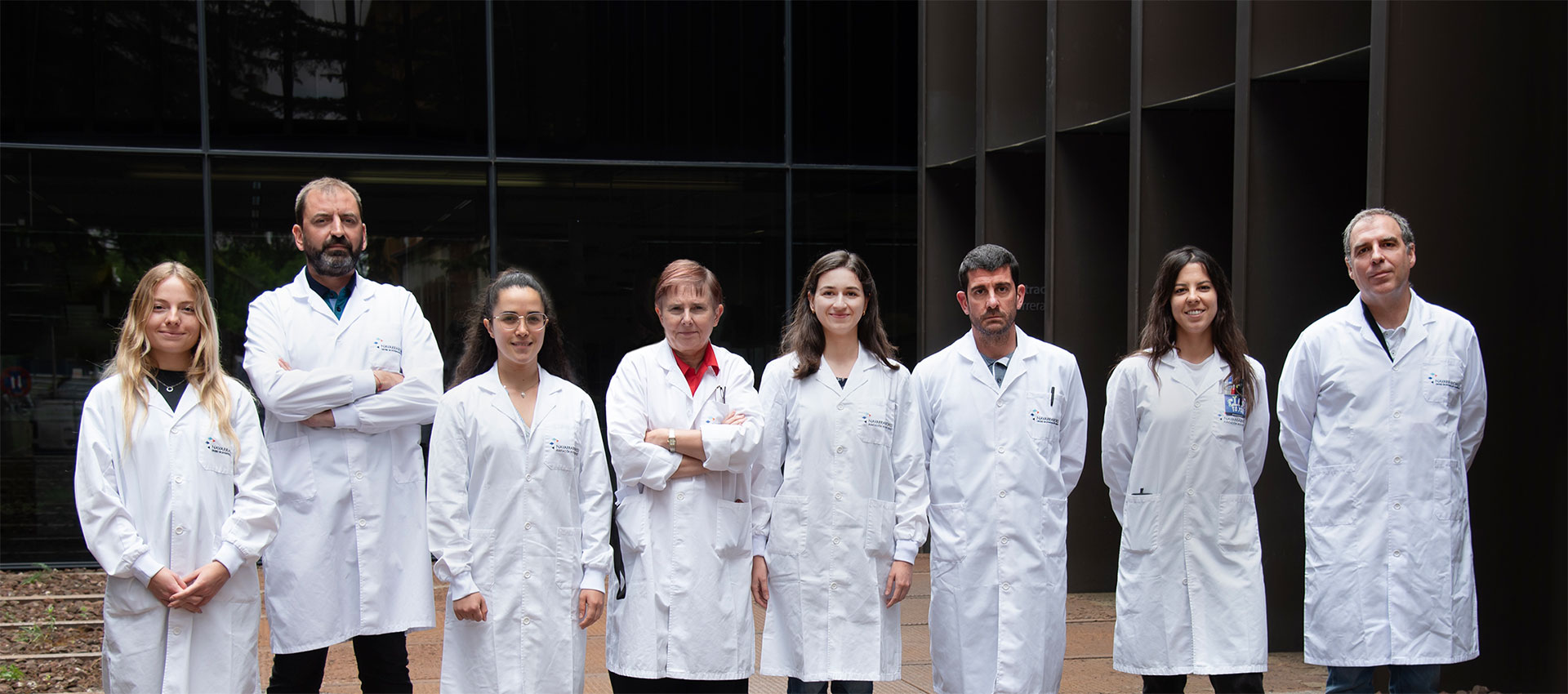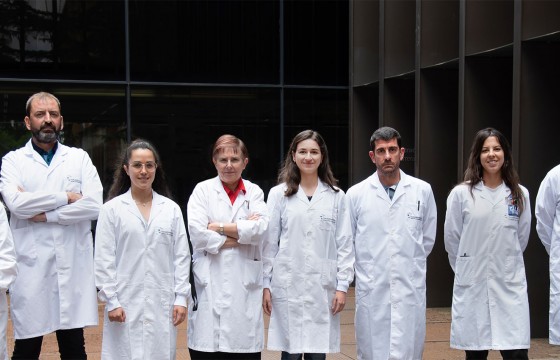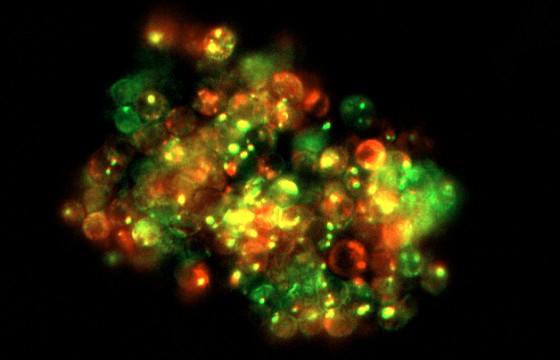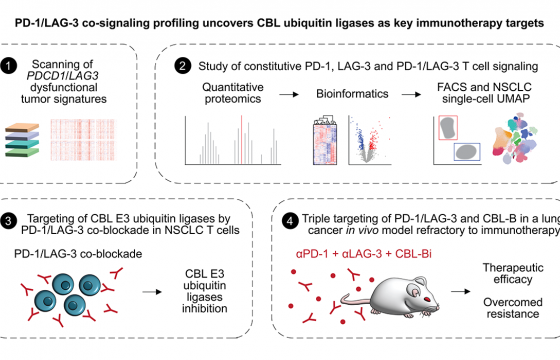
Navarrabiomed identifies CBL ubiquitin ligases as novel therapeutic targets in non-responder patients to conventional immunotherapies
• Researchers have reverted PD-1/LAG-3-mediated resistance and tripled survival in mouse cancer models.
Researchers from the OncoImmunology Unit of Navarrabiomed have identified one of the major mechanisms of resistance to PD-1/PD-L1 blockade immunotherapy, achieving a 3-fold survival increase in mouse models of lung cancer. This study provides a highly detailed map of novel therapeutic targets, among which they found CBL ubquitin ligases. These results will allow the development of treatments that could benefit cancer patients resistant to conventional therapies.
The study led by Drs David Escors and Grazyna Kochan has been published in the prestigious scientific Journal “EMBO Molecular Medicine”.
Novel map of therapeutic targets
Cancer immunotherapies are treatments that potentiate immune defenses of the patient (immune system) so that they recognize and eliminate tumors. However, a large number of patients do not respond to conventional treatments because one key type of immune cell (T-cell) simply do not work.
The research carried out in Navarrabiomed has characterized the mechanisms of lymphocyte dysfunctionality in lung cancer patients, using Omics data, proteomic and molecular techniques in cell lines, T cells from patients and mouse. More specifically, the signaling mechanisms of PD-1 and LAG-3 (two immune checkpoint molecules) have been elucidated. These molecules are expressed in T cells from cancer patients, and inhibit their anti-tumor capacities.
It has to be remarked that so far, the mechanisms by which PD-1 and LAG-3 cooperate to protect cancers were unknown. Accordingly, the OncoImmunology team has uncovered for the first time the molecular activities of the PD-1/LAG-3 signaling pathways in the immune system of patients. During the investigation, data from more than 40 different human cancers have been studied, adding a significant medical and scientific value to the study. Indeed, the generated map of therapeutic targets will open new options for clinical practice.
As a proof of principle, the authors of the study selected one of the multiple identified targets, the CBL ubiquitin ligases. The use of CBL inhibitors combined with immunotherapy antibodies tripled survival in mouse models of lung cancer resistance to conventional therapies, reverting resistance mediated by PD-1 y LAG-3. Although this study has been focused in lung cancer, the results could be applied to other cancer types.
Multidisciplinar research team and funding
The study is part of the PhD thesis of Luisa Chocarro from the Oncoimmunology Unit of Navarrabiomed, with the participation of Ester Blanco from the same unit. Luisa Chocarro remarks that “these results will allow a better understanding of the complex mechanisms underlying resistance to immunotherapies. Moreover, they will help the development of targeted therapies counteracting these mechanisms so that more cancer patients can benefit from the treatments”.
The research was carried out in close collaboration with the Proteomics Platform from Navarrabiomed, the Medical Oncology Unit of Hospital Universitario de Navarra, and the biotechnology company Crescendo Biologics. This study was financed by Asociación Española Contra el Cáncer, Instituto de Salud Carlos III, Government of Navarre and ISOLDA grant from the European Union Horizon 2020 programme.






